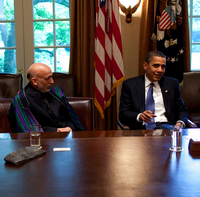
The first official visit of Russian President Dmitry Medvedev to Washington last week offers a convenient opportunity to assess the current Russian-U.S. relationship. Since assuming office, one of the priorities of U.S. President Barack Obama and his foreign policy team has been to improve ties with Russia and other foreign governments that had become alienated from the United States. Relations between Washington and Moscow became especially strained in 2007 and 2008 following the acute confrontations that arose over the planned U.S. missile defense deployments in Poland and the Czech Republic, Russia’s August 2008 War with Georgia, and other issues. Despite […]



